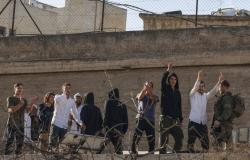Prime Minister Benjamin Netanyahu’s fascist cabinet approved a 2025 budget featuring some of the harshest public spending cuts and tax hikes Israel has ever seen to finance war.
With the war, already the longest and costliest Israel has ever fought, now spreading to Lebanon and Iran, the proposed tax hikes and spending cuts are likely to intensify before that the Knesset approves the budget in three months.
According to the Ministry of Finance, by the end of last September, the direct cost of the war had reached $29 billion. Since then, it has skyrocketed with the assault on Lebanon, more violent fighting in Gaza and strikes against Iran. Tens of thousands of reservists have been mobilized and ammunition is running out at a rapid rate. Daily costs increased from $110 million to $135 million, an amount that would allow the construction of a dozen much-needed schools.
Rating agencies have lowered Israel’s credit rating, while foreign investors have reduced their exposure to Israeli debt. The economy, still not recovered from its collapse in the first months of the war when some 350,000 reservists were mobilized, is less important today than it was on October 7, 2023. The high technology sector of ‘Israel, much vaunted, is in trouble. Intel Israel to lay off hundreds of workers. Investments in installations and equipment are declining. The travel and tourism industry is at a standstill, with flights canceled due to the war.
Last month, following Iran’s missile attack, Chevron, which operates Israel’s Leviathan gas field, announced it was suspending work on a $429 million expansion project due to the “security situation”. Further Israeli attacks on Iran, particularly its oil facilities, could spark a much wider war, creating a global oil shortage and increasing the cost of imported oil, with knock-on effects throughout the country. economy.
The state’s 2025 budget of $163 billion is about $4.8 billion higher than this year’s and includes a massive $27.2 billion increase for army, which could reach $40.1 billion. The 2024 budget which, despite the war, did not include any tax increases or significant reductions in public spending, accumulated a large budget deficit and postponed the bill until later.
Finance Minister and Religious Zionist leader Bezalel Smotrich proposes slashing spending, raising taxes to finance the war – currently estimated to cost $66.8 billion by the end of the year – and to close a deficit of 10.7 billion dollars in 2025. The budget deficit will nevertheless reach 4.4% of GDP, higher than the 2.25% forecast due to the increase in the cost of war.
The measures, which the working class will have to endure, include a freeze on public sector wages and social benefits for the elderly, disabled people and Holocaust survivors. Even wounded soldiers and families of slain soldiers will not be spared. As consumer prices rise nearly 4% a year, Israelis will pay more taxes – VAT is expected to rise and workers in the lower tax rate will see their rate rise from 10% to 14% – while the real value of social benefits will decrease.
As Israel is one of the most unequal countries in the OECD group of advanced countries, the budget will have a devastating impact. According to the National Insurance Institute, even before the war, poverty had increased with 1.98 million Israelis (about 21% of the population) in poverty in 2022, of whom 949,000 were working. This particularly affects children, almost one in three of whom live in poverty. Food prices have increased; those of vegetables jumped by 18% and fruits by 12%, due to agricultural shortages, making life particularly difficult for those experiencing food insecurity.
All ministries except Defense will see their funding cut, with education and public transport hit hardest. But Smotrich also takes $73 million from the health care budget and $26.7 million from welfare; he closed five ministries that he considered superfluous.
Arnon Bar-David, the leader of the [fédération syndicale] Histadrut, after spending hours speaking with the Finance Ministry and Smotrich, said his corporatist body would support the proposed budget – after securing two extra paid days off in exchange for a public sector wage freeze.
The austerity budget follows the ever-increasing cost of the war in Gaza, which has now lasted 13 months, the near-daily mass raiding operations in the West Bank, the escalation of fighting in Lebanon and strikes against ‘Iran, with no end in sight. The Israeli Defense Forces (IDF), which launched a ground invasion of Lebanon with the aim of pushing Hezbollah back to the Litani River, were unable to hold ground more than two kilometers from the border and had to organize frequent retreats when the number of casualties was too high.
Netanyahu insisted he would defy international pressure and continue to pursue Israel’s war goals – a “total victory” against Hamas and the degradation and defeat of Hezbollah – while warning Iran that “it “There is no place” in the Middle East that “the long arm of Israel cannot reach.”
The military will need nearly $100 billion more over the next decade, according to reports from a committee examining future defense needs, meaning higher taxes and expanded service in the regular and reserve army, which will reduce economic output. This is a country that, even in 2022, had the 15th largest military budget in the world, far higher than countries with infinitely larger populations and economies.
The army is desperately short of manpower. According to a recent study by the Institute for National Security Studies, the Israeli army will need approximately 20,000 combat troops and other personnel. This fuels the heated debate that threatens Netanyahu’s coalition over ending the exemption of ultra-Orthodox Jews (known as Haredim) from compulsory military service if they study in religious seminaries (yeshivas).
Last June, the High Court ordered an end to the exemption for Haredim by November this year, with Attorney General Gali Baharav-Miara later ruling that draft dodgers would not be eligible for benefits government funding and daycare subsidies. This would be a blow to the ultra-Orthodox, who do not work and rely on benefits negotiated by ultra-religious parties as the price to pay to keep Netanyahu in power. The Israeli military has done little to respond to the court’s ruling and to recruit the ultra-Orthodox, allowing Haredim to avoid conscription without losing their benefits.
But in a war that has cost the lives of at least 772 soldiers and security personnel, injured at least 12,000 others – figures that opposition leader Yair Lapid has called grossly underestimated – and which forced tens of thousands into months of reserve service, it provoked anger and disgust among secular Israelis, already alienated by the domination of religious authorities over daily life.
Now, religious parties are introducing a government-backed bill to subsidize daycare for the children of full-time yeshiva students dodging conscription at a cost of $54 million; and they made approval of the law the condition of their support for the 2025 budget.
Other divisions are coming. According to the military correspondent of HaaretzAmos Harel, the Israeli defense establishment believes that the war in Lebanon and Gaza has exhausted troops and risks heavy losses if the Israeli army is forced to remain there. The army would prefer an agreement to obtain a ceasefire and the release of all hostages still held in Gaza.
While the majority of Jewish Israelis support a defeat of Hamas, the toll of the war – for Israelis and Palestinians – is pushing some Jewish Israelis to leave the country. Among those who left in October 2023, 12,000 had not returned as of last June, according to official statistics. One in four Jewish Israelis and four in 10 Arab Israelis say they would emigrate if given the chance, according to a survey by the Jewish People’s Policy Institute. Its president, Professor Yedidia Stern, said: “The results indicate a deep crisis of trust between the public and political and security leaders. This is an important challenge at any time, but particularly crucial in times of crisis.”
The Arab news site Middle East Eye cites a report showing that a growing number of Israeli soldiers are becoming increasingly disillusioned with the fighting, with some refusing to return to the battlefield. A soldier told HaMakom that the missions were “half-done” due to lack of personnel. “The platoons are empty; those who are not physically dead or injured are mentally broken. Very few return to fight, and even those are not entirely well,” the soldier said.
Last month, 130 Israeli soldiers and reservists signed an open letter to Netanyahu, making their continued service conditional on signing a deal to release hostages and end the war, the first massive wave of soldiers Israelis refusing to serve in protest against the war and occupation in recent years.
(Article published in English on November 3, 2024)



















